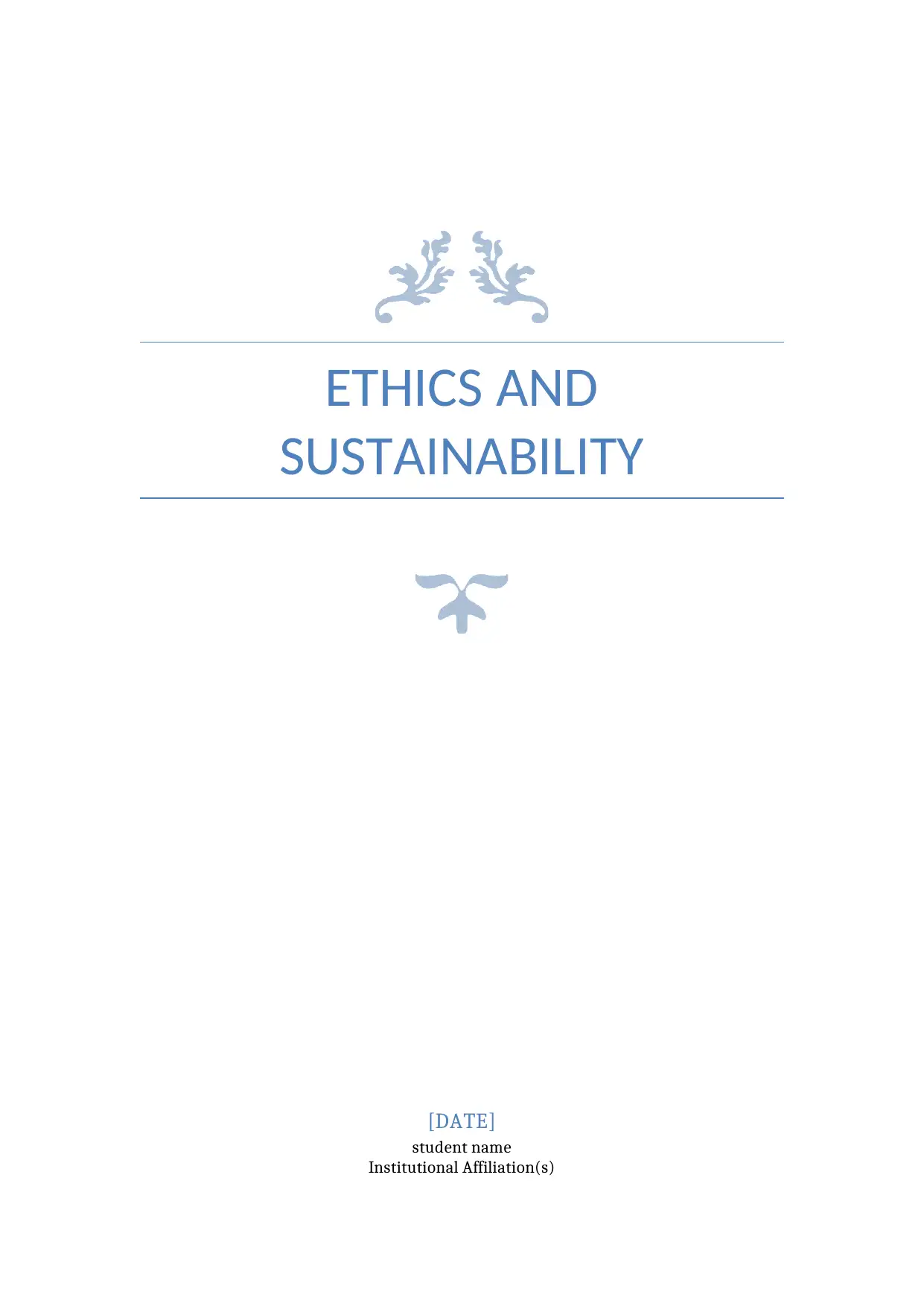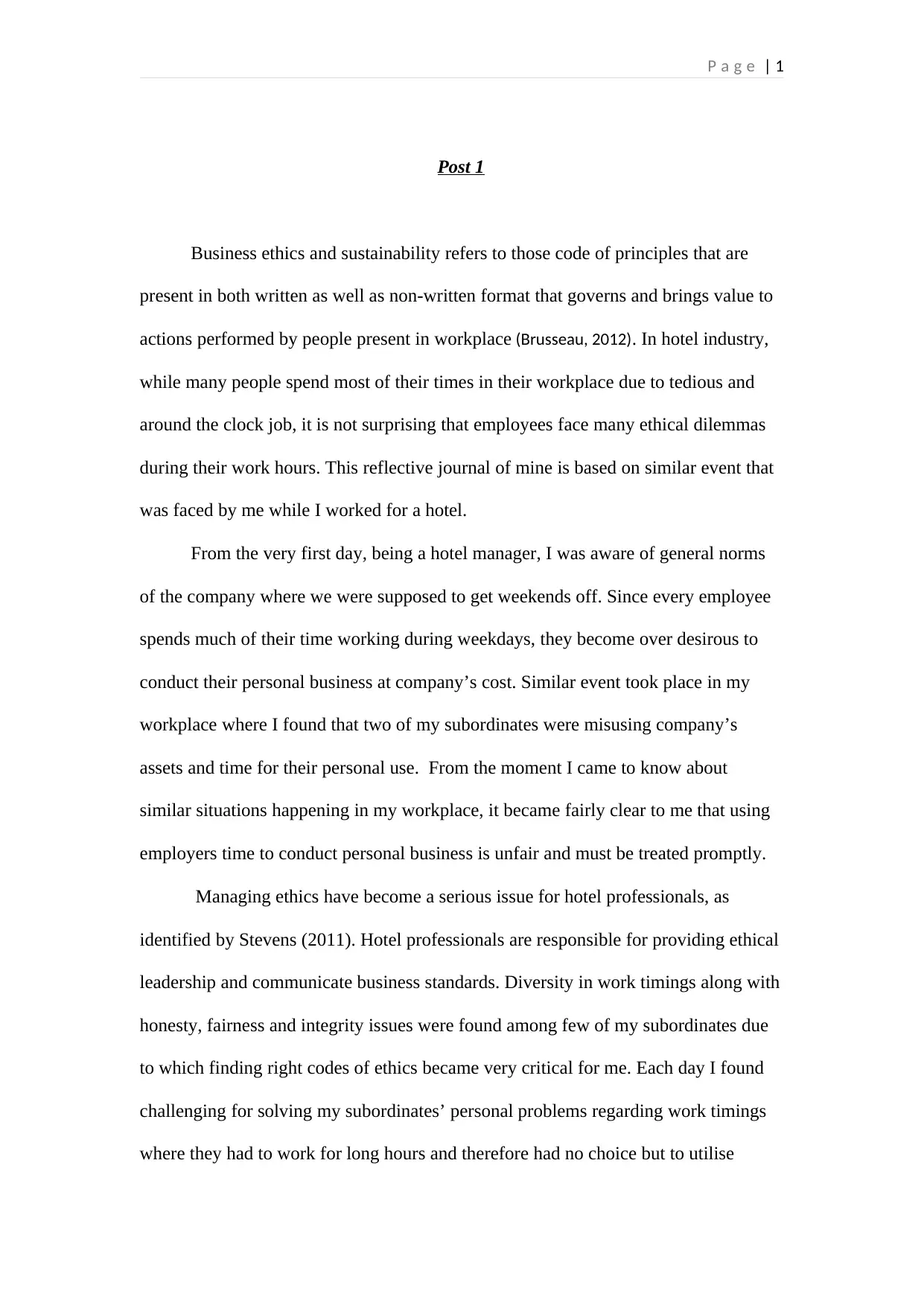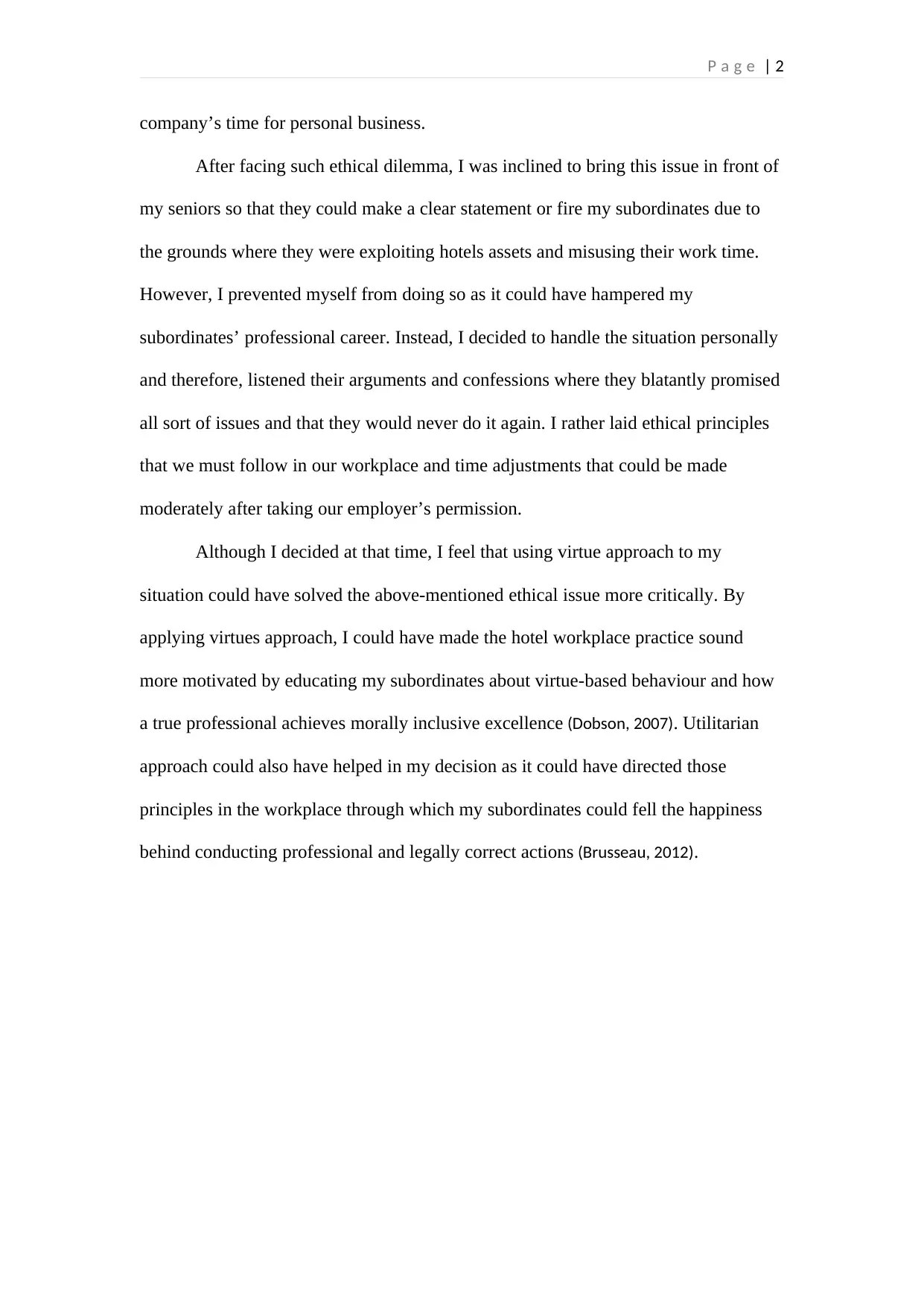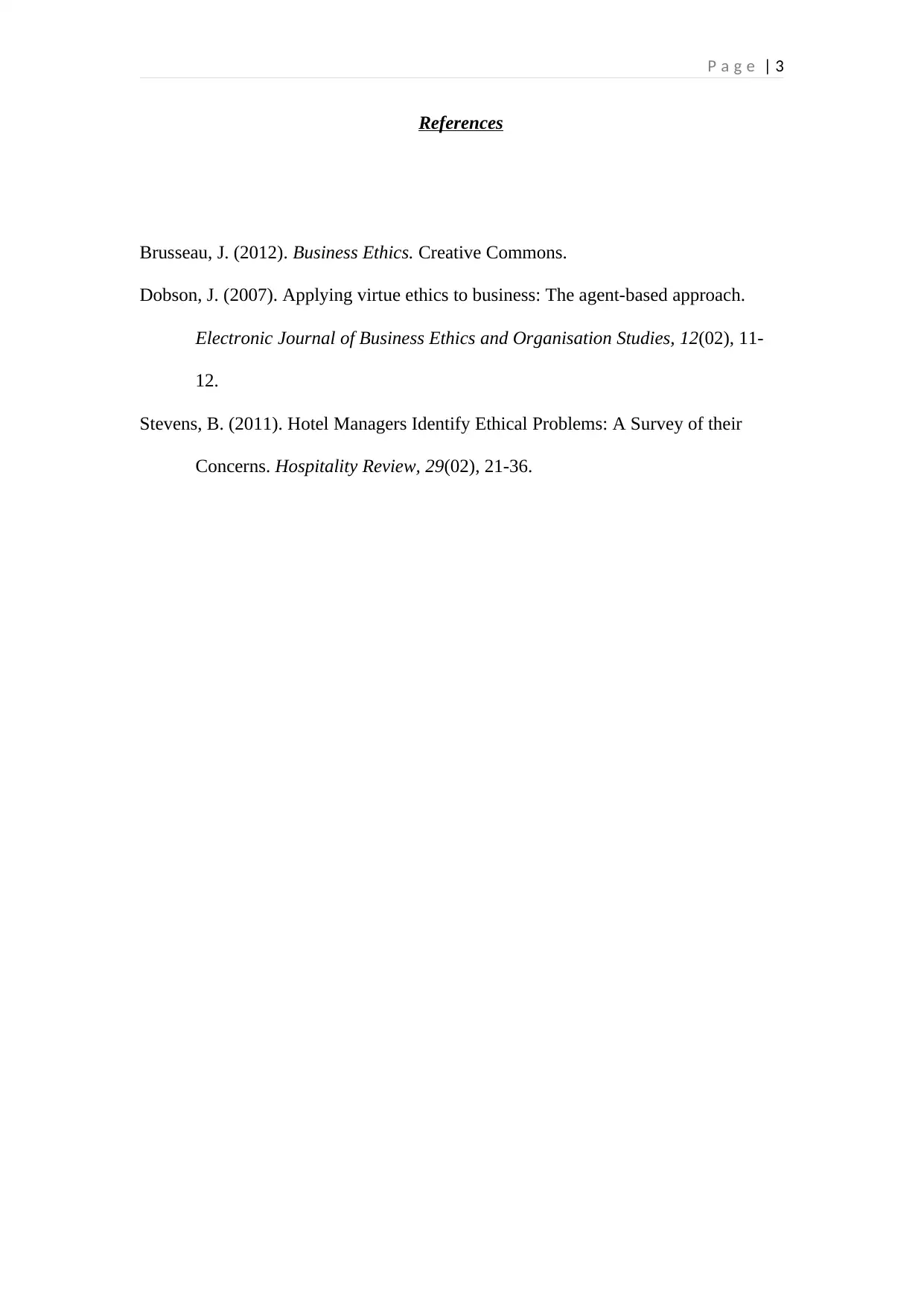Ethical Decision-Making: A Reflective Journal on Sustainability Ethics
VerifiedAdded on 2023/06/03
|4
|657
|127
Journal and Reflective Writing
AI Summary
This reflective journal discusses an ethical dilemma faced by a hotel manager regarding subordinates misusing company time and assets. The manager reflects on the decision-making process, considering alternative actions and factors influencing the choice. The journal also identifies virtue and utilitarian ethical frameworks that could have aided in the decision. It highlights the importance of ethical leadership and managing ethical issues such as honesty, fairness, and integrity in the hotel industry. The manager chose to address the issue personally, listening to the subordinates and establishing ethical principles for the workplace, rather than immediately involving senior management or imposing severe disciplinary actions. Desklib provides a platform for students to access similar solved assignments and study tools.
1 out of 4











![[object Object]](/_next/static/media/star-bottom.7253800d.svg)